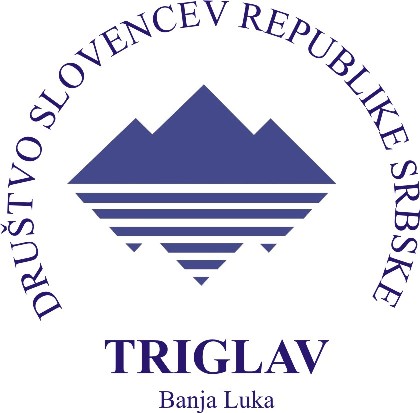On Thursday, the 21st and Saturday, November 23rd, 2024 , we had a traditional Slovenian breakfast as a supplemental Slovenian language class.
We talked about healthy food with the participants of all groups. I introduced them to a project that has been held in Slovenia every third week of November since 2012, called Slovenian Food Week. As part of Slovenian Food Week, the Traditional Slovenian Breakfast project is also taking place, involving Slovenian kindergartens, primary schools and other institutions, or public institutions.
The purpose of the project is to educate and raise awareness among schoolchildren and, in parallel, to a certain extent, the general public about the importance of breakfast in the context of eating habits, the importance and benefits of locally produced foods of Slovenian origin, and the importance of agricultural activities and beekeeping.
This year's traditional Slovenian breakfast was held in Slovenia on Friday, November 15th, 2024, and was accompanied by the slogan “My best breakfast”. It consists of bread, butter, honey, milk and apples.
I brought the students of supply Slovenian language classes from Slovenia, or rather from Prekmurje, and treated them to home-made Slovenian food. They ate homemade honey from a well-known Prekmurje beekeeper, white milk bread called "vrtanek" (braid) in Prekmurje, homemade organic apples, and milk and butter were from the store. Instead of milk, I offered the older students homemade organic black mint juice, which they were delighted with, so I also introduced them to a very special community farm in Gorička in Prekmurje, called Korenika, from where I brought most of the local delicacies. With the younger participants, we watched two videos that show the production of all five ingredients of a traditional Slovenian breakfast in a fun and educational way.
Why is it called a traditional breakfast?
Our ancestors certainly couldn't afford ingredients like butter and honey, they ate what they had. I myself remember that it was a rarity in our home. A beekeeper would bring us a jar every now and then, and you could put a small teaspoon in your tea when you had a cold. We never spread it on bread. Therefore, the word traditional does not refer to the past, but to the present and the future in the sense that domestic, local foods should be on our menu every day and thus become traditional. With the participants of additional classes, we exchanged opinions about what is healthy and what is not, we also discussed our own eating habits and found that breakfast is not an important meal for many or they even skip it, although the old saying says:
Eat breakfast like a king
have lunch like an ordinary citizen
and dine like a beggar.
Metoda Perger, teacher












